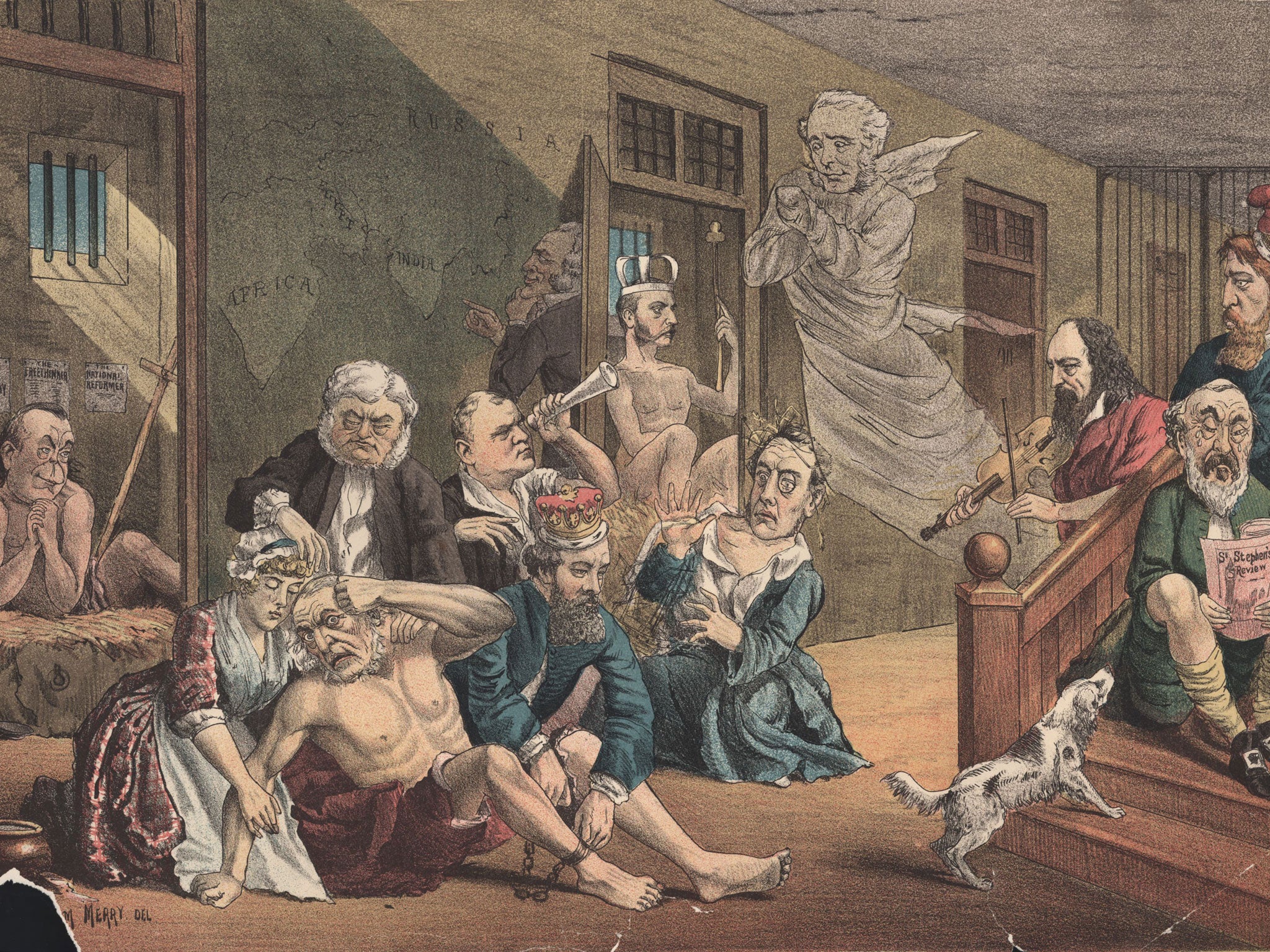Your support helps us to tell the story
From reproductive rights to climate change to Big Tech, The Independent is on the ground when the story is developing. Whether it's investigating the financials of Elon Musk's pro-Trump PAC or producing our latest documentary, 'The A Word', which shines a light on the American women fighting for reproductive rights, we know how important it is to parse out the facts from the messaging.
At such a critical moment in US history, we need reporters on the ground. Your donation allows us to keep sending journalists to speak to both sides of the story.
The Independent is trusted by Americans across the entire political spectrum. And unlike many other quality news outlets, we choose not to lock Americans out of our reporting and analysis with paywalls. We believe quality journalism should be available to everyone, paid for by those who can afford it.
Your support makes all the difference.As humans, we love to believe in progress. We love to believe in it on both the historical and personal scale. It gives us a great and deep sense of meaning, as individuals and as a species, that things get better. And in many areas, not least science and health, we have lots of reasons to be Enlightenment evangelists of that most attractive of concepts.
Mental health, however, is one area in which our belief in progress comes under threat. After all, if you are seriously mentally ill you are still likely to die a lot younger than everyone else and you are still unlikely to fully understand what is happening inside your brain, or the exact cause of your symptoms.
Yet surely things are better than they used to be? Well, yes, in some respects but the debates we have now are, in many ways, the debates we have always had. This became startlingly clear as I made my way through Andrew Scull's vast and rather brilliant book Madness in Civilization: a Cultural History of Insanity. Scull has set himself the epic undertaking of looking at the history of madness across thousands of years, covering almost every quarter of the globe, and though we encounter a lot of range, the shocking thing is the similarities across eras and continents.
For instance, the central debate as to whether mental illness is caused from inside the body or outside has been around for millennia. In ancient Greece, Hippocrates and his followers saw madness and mental unrest as being the products of bodies gone wrong, while at the same time many – indeed most – contemporaries believed that mental ill-health had a supernatural explanation, visited upon sufferers by the gods themselves. Hippocratic texts were the first, also, to treat the brain as the centre of things rather than the heart (as Aristotle and others had it).
We are told that the word "melancholy" itself is from the Greek words for black (melan) and bile (chole), and of course not only do we still have the word melancholy but we also refer to depression as a black mood or a black dog. But then, we also refer to battling our demons too.
Religion was often the key factor in determining the cause of madness. In ancient Islam the old Arabic idea that demons (jinn) were responsible for every kind of disease and disorder was still strongly prevalent, though followers of Islam had no equivalent of the exorcisms that were a feature of Christian understanding.
Religious explanations have largely been replaced these days by psychiatric ones. The idea that "madness" and troubled minds are things that need treating medically by (in Scull's words) "a self-conscious and organised group of professionals who laid claim to jurisdiction over mental disturbance, and who obtained a measure of social warrant for their claims" has only been around a matter of seconds. Well, since the 19th century.
Matt Haig's memoir Reasons to Stay Alive (Canongate, £9.99) is out now

Join our commenting forum
Join thought-provoking conversations, follow other Independent readers and see their replies
Comments